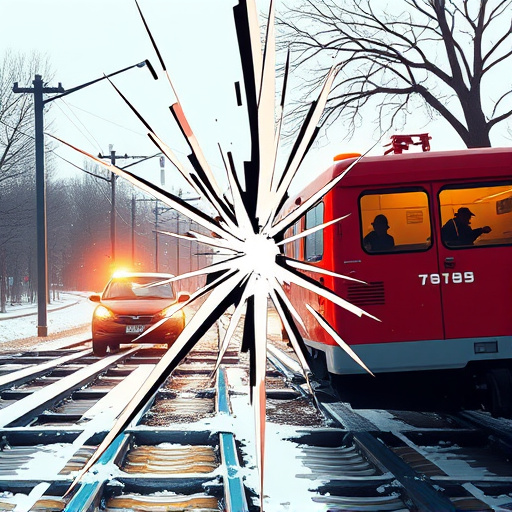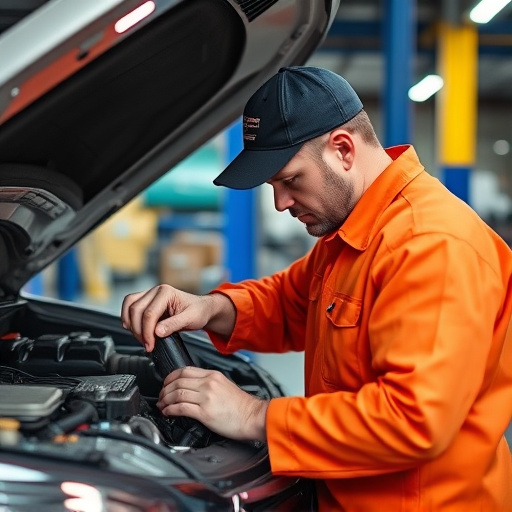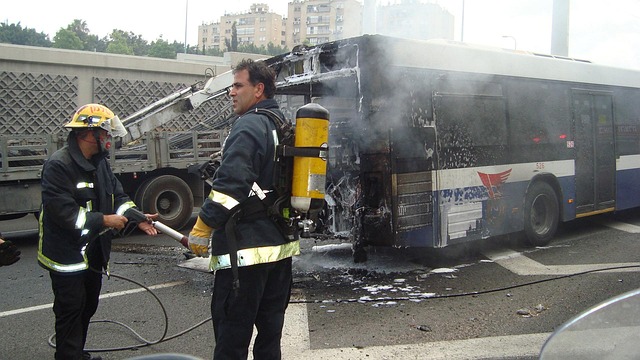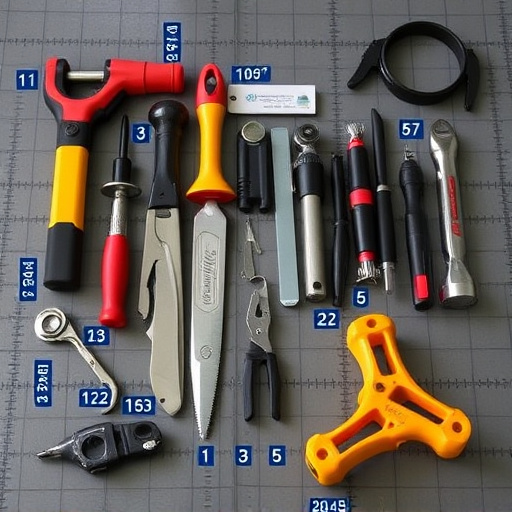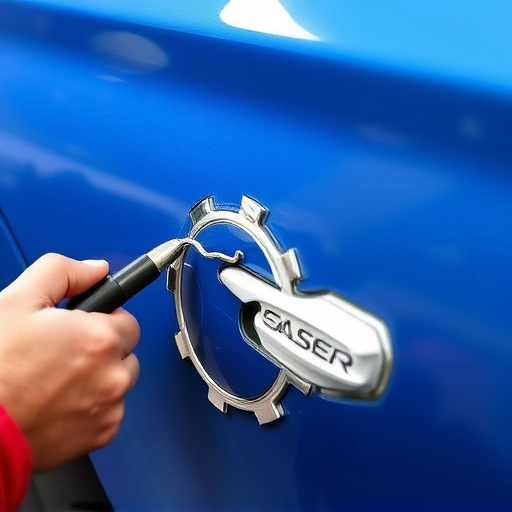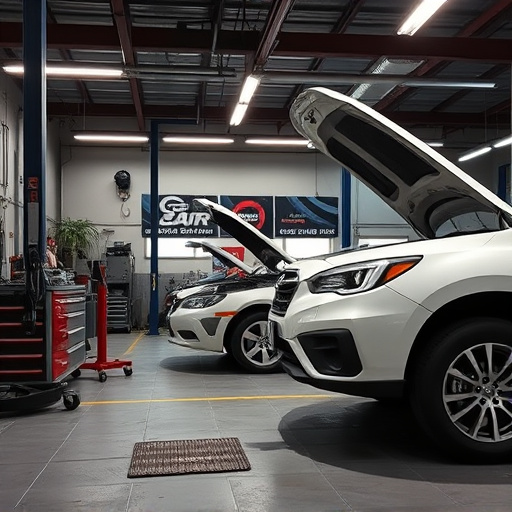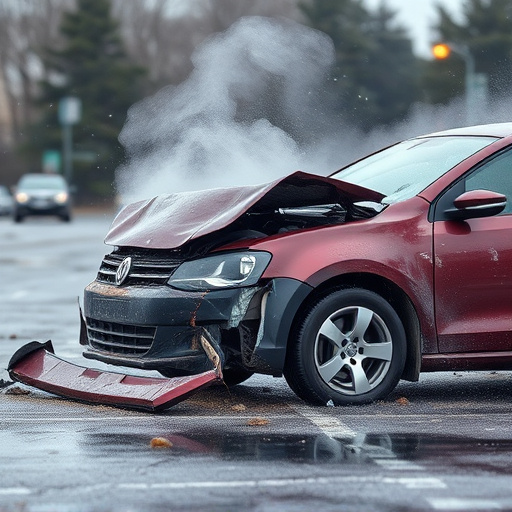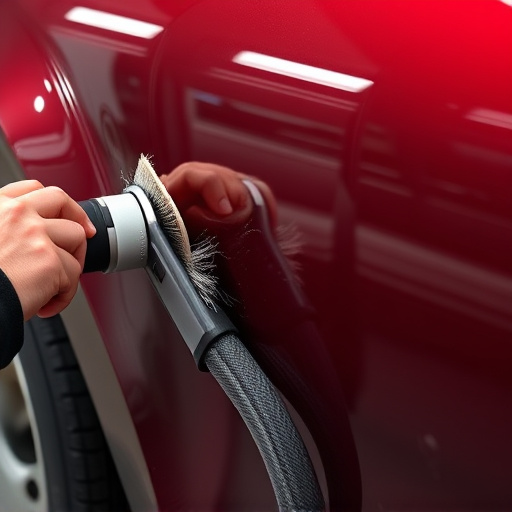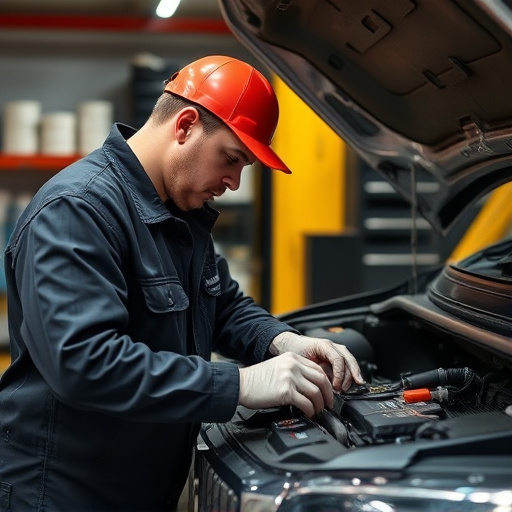Repair Quality Verification (RQV) is a critical process ensuring every auto body repair meets stringent standards for structural integrity, paint quality, and aesthetic restoration. In a competitive market, RQV differentiates reputable shops, safeguards against mistakes, ensures repair longevity, and boosts vehicle value. By implementing robust RQV strategies, including meticulous auto painting, regular quality checks, and specialized training, businesses can maintain optimal vehicle condition and secure long-term financial success in the resale market.
The impact of repair quality verification on resale value is a critical yet often overlooked aspect of property management. This article delves into the intricate link between meticulous repair and renovation processes and their profound effect on market performance. We explore how robust repair quality verification serves as a cornerstone for preserving asset value, analyzing various strategies to ensure both short-term satisfaction and long-term financial health. Understanding these dynamics is essential for maximizing investment returns in today’s competitive real estate landscape.
- Understanding Repair Quality Verification: The Cornerstone of Preservation
- Resale Value Dynamics: How Repair Quality Verification Impacts Market Performance
- Strategies for Effective Implementation: Ensuring Both Quality and Long-term Financial Health
Understanding Repair Quality Verification: The Cornerstone of Preservation

Repair Quality Verification is the cornerstone of preserving vehicle value, especially in the realm of auto body restoration and auto body services. It’s a meticulous process that ensures every repair, from dent removal to complex panel replacements, meets exacting standards. This involves detailed inspections, using specialized tools and techniques, to verify structural integrity, paint quality, and overall aesthetic restoration—all vital aspects that impact an vehicle’s resale value.
In the world of auto body shops, a robust repair quality verification process is not just about maintaining customer satisfaction; it’s also a key differentiator in a competitive market. It safeguards against costly mistakes, ensures longevity of repairs, and ultimately, maximizes the resale value of vehicles, making it a fundamental practice for any reputable auto body shop.
Resale Value Dynamics: How Repair Quality Verification Impacts Market Performance

The resale value of a vehicle is influenced by various factors, and one of the most significant contributors is the overall condition of the car. In today’s market, buyers are increasingly conscious of the quality of repairs done on a used car, which has led to a direct connection between repair quality verification and resale value. This trend is particularly prominent in the auto body restoration sector, where precise and meticulous work can make a substantial difference.
When it comes to auto dent repair, for instance, ensuring that the process is carried out with precision and using high-quality materials can significantly impact how the car performs in the secondary market. A well-executed auto dent repair job not only restores the physical appearance of the vehicle but also communicates to potential buyers that the car has been cared for properly. This, in turn, boosts resale value by appealing to discerning customers who appreciate the transparency and quality of previous maintenance efforts.
Strategies for Effective Implementation: Ensuring Both Quality and Long-term Financial Health
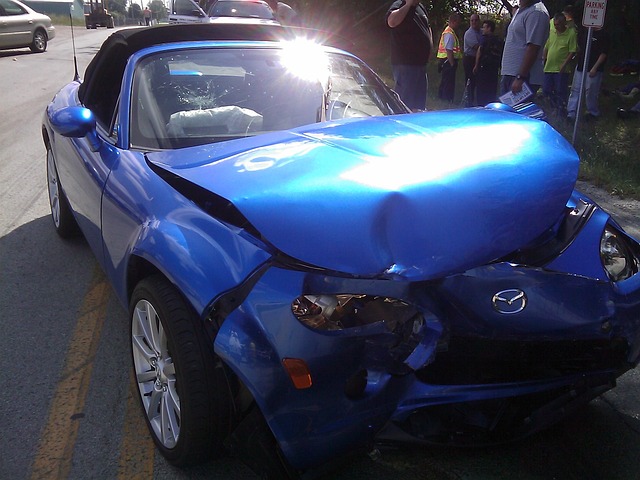
Implementing effective strategies for repair quality verification is paramount to ensuring both exceptional vehicle condition and long-term financial health in the resale market. This process begins with meticulous auto painting and auto body painting techniques during the repair phase, where skilled technicians meticulously match original factory finishes.
Regular and rigorous quality checks throughout the restoration process, focusing on intricate details like panel gaps and paint consistency, help maintain the vehicle’s aesthetic appeal. Furthermore, specialized training for mechanics in auto dent repair ensures minimal scuffs or imperfections remain after repairs, enhancing the overall resale value of the vehicle. These strategies not only guarantee customer satisfaction but also create a solid foundation for favorable market performance post-resale.
Repair quality verification is not just a quality control measure; it’s a strategic investment in long-term financial health. By ensuring meticulous repair standards, homeowners can significantly influence their property’s resale value. This article has explored the critical role of repair quality verification in preserving asset value and provided strategies for its effective implementation. Embracing these practices can navigate buyers through a transparent and trustworthy sales process, fostering a robust real estate market.


